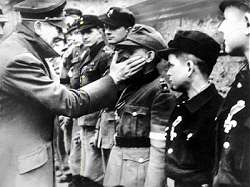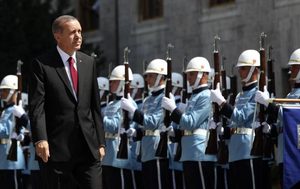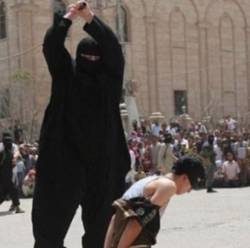Direct Translation via Google Translate. Edited.
by Kamran Gasanov
[REGNUM] Israel's attack on Iranian nuclear and military facilities on the night of June 12-13 came as a shock to many countries in the Middle East.

It cannot be said that it was unexpected, since Qatar, the UAE, and Saudi Arabia had asked Donald Trump the day before not to use force against Iran, since a retaliatory strike could hit American bases on their territory.
| Did they mean it, or was that merely face-saving posturing? |
But the escalation that began, which was very difficult to control, especially given Trump’s own compliments to the Israeli army (IDF), seriously frayed the nerves of Saudi Prince Mohammed bin Salman, his colleagues in the GCC and one of Israel’s main antagonists in the region, Turkish President Recep Tayyip Erdogan.
| The poor darlings, all of whom — except, in the medium term, Turkey — are considerably safer now than they were before. Turkey needs to hope that President Trump will protect them from Israel’s ire, given how awful they’ve been in that direction, but after seeing how Iran was not protected, perhaps ought not be as smugly sanguine as they were… |
The first official reaction from Ankara began to come closer to midday on June 13. Turkish Foreign Minister Hakan Fidan accused Israel of violating international law, destabilizing the region and provoking the US-Iran talks.
| Because America needs to be white knighted like that… |
Vice President Cevdet Yilmaz announced that Turkey "strongly condemns the Netanyahu administration's aggression," which has no legitimate justification and is aimed at undermining regional stability.
Parliament Speaker Numan Kurtulmuş said Israel's actions were plunging "the region and the world into flames."
| Hystarical much? Given how carefully Israel has targetted her hits, even Iran in general is not plunged into flames — exactly as was observed in Gaza, Lebanon, and Syria. |
The head of the Turkish presidential administration's communications department, Fahrettin Altun, said the strikes on Iran showed "how dangerous the genocidal Netanyahu administration has become for the region and world peace."
Speaking via social media that evening, Erdogan summarized the positions of his comrades, repeating the theses about Israel’s intention to disrupt the negotiations between Iran and the United States, violating international law and destabilizing the region, but adding emotional assessments.
The attacks, he said, demonstrate "the Israeli mentality of breaking all rules" and that the international community needs to stop "Israeli banditry."
| You going to bell the Israeli cat, perhaps? No? Then we know what to think about you. |
The Turkish president's words, bordering on insult, are in fact resonating with millions of Muslims, and especially Arabs, who have been watching the extermination of tens of thousands of Palestinians in Gaza for almost two years.
| Either in their heart of hearts they don’t believe what they say, or they are cowards, all. Either is acceptable. |
Israel uses force not only in Palestine, but also in neighboring Lebanon and Syria. After the change of power in Syria to the pro-Turkish Ahmed al-Sharaa, Ankara has another point of conflict with Netanyahu.
The IDF has been shelling Turkish military base construction sites in Syria. In May, Turkey and Israel, brokered by Trump, launched de-escalation talks in Baku, but the prospects for normalization have become even more dim after Israel’s attack on Iran.
| Israel has had normalization with Turkey. Several times, as Erdogan’s mood and calculations wax and wane. It no longer seems a goal worth striving for, given how quickly President Erdogan turns negative. |
At the same time, Erdogan has no sympathy for Iran or its “axis of resistance,” to put it mildly. Turkey has been butting heads with pro-Iranian Bashar al-Assad in Syria for many years. In December 2024, Ankara effectively drove the Iranians out of Damascus.
Against this background, Europe has another argument to stop isolating Ankara and move towards rapprochement with it. For the EU and Britain, Turkey has become a window of access to Syria - the first visits of European foreign ministers were organized by the Turkish side.
When Trump began to question America’s participation in ensuring European security and gradually “withdrew” from support for Ukraine, Turkey’s importance for the Old World increased to the skies.
However, they will still not be able to become allies: there are too many contradictions.
Europe is trying to split the Turkic world - Turkmenistan, Kazakhstan and Uzbekistan disowned Northern Cyprus at the EU summit. Erdogan's activity in the Mediterranean with attempts to divide maritime borders with Libya and Syria worries Cyprus, Greece, France and other EU members.
The Iranian issue, although not the main point of divergence between Turkey and the EU, does not add sugar to the tea of the Turkish-European partnership.
While Erdogan accused Netanyahu of banditry, European countries quickly changed their tune. If yesterday they threatened to impose sanctions on Israel for its new operation "Gideon's Chariots", now Germany, France and Great Britain are talking about its "right to self-defense".
Erdogan did not quarrel with the Europeans because of their hypocrisy. Firstly, because investments, trade and defense projects with Europe are important and necessary for him. And secondly, despite all the hatred for the "murderer Netanyahu", Iran is not the topic for which it is worth taking such a principled position.
As in the previous year, when Iran and Israel also exchanged blows and sabotage, Turkey is again formally on Iran’s side. Erdogan needs to show solidarity with the Islamic world and its protector in the face of Israeli expansion. Last summer, he even proposed creating an “Islamic army” in response to the killings in Gaza and attacks on Lebanon.
It is worth remembering that Iran and Turkey have historically been competitors in the region. In the first half of the 16th century, the Ottoman Empire waged grueling wars with the Safavid Empire for control over eastern Anatolia, Kurdistan, and the South Caucasus. And at the present stage of history, Türkiye and Iran are still competing for influence in the Middle East and the South Caucasus.
Iran was very unhappy with the plans to create the "Zangezur Corridor" between Azerbaijan's Nakhchivan and Turkey. Erdogan took over one of Iran's proxies, Syria, and is forcing competition on Iran in Shiite Iraq, implementing the "Development Road" project there, connecting Istanbul with the Persian Gulf.
Despite the objective competition, the situational interests of Turkey and Iran in relation to Israel coincide. Both Erdogan and Ayatollah Khamenei want to stop the war in Gaza and oppose further Israeli expansion in Lebanon and Syria.
Turkey is not happy with the breakdown of the “nuclear negotiations” because Ankara is interested in lifting sanctions against Iran.
Under the Obama administration, Turkey's Halkbank was indicted in the U.S. for circumventing these restrictions in the Zarrab affair, a scheme that involved several members of Erdogan's cabinet.
Tehran and Ankara, despite all their problems, manage to keep competition within reasonable limits. That is why Erdogan unilaterally expressed condolences to the “friendly and brotherly people of Iran,” ignoring the losses on the Israeli side.
International crises involving Muslim countries are always an opportunity to strengthen relations with the Islamic world, in which Türkiye is extremely interested.
Erdogan's first call was to the Crown Prince of Saudi Arabia, whose rhetoric toward Israel has hardened, and the King of Jordan. Calls were also made to two other allied states that are extremely sensitive to relations with Israel.
The Turkish president tried to convince Syrian leader Al-Sharaa not to get involved in the confrontation between Iran and Israel, since such a situation would require Turkey to declare war on Israel, and in fact, on the US and NATO.
Consultations were also held with Azerbaijani President Ilham Aliyev, who is allied with Israel, and it was important for Erdogan to hear from Baku that it would not provide its territory for an attack on Iran. After all, in that case, Tehran could strike Azerbaijan, which would force Turkey to act within the framework of the "Shushin Declaration."
In the context of the Iranian-Israeli standoff, another point has been identified from the point of view of Turkey's interests. The fact is that Russia and the United States are working to put an end to the conflict. After a conversation with Vladimir Putin, the American leader announced that they both believe that the war must end.
On the same day, June 14, Erdogan called Trump and said that Ankara was ready to make every effort to prevent uncontrolled escalation. On June 15, Fidan discussed de-escalation with his Russian counterpart Sergey Lavrov.
Erdogan, judging by Trump's compliments, Turkey's mediation in the dialogue between Al-Sharaa and the head of the White House and the Istanbul talks with Marco Rubio, enjoys the US President's great respect. Russia still counts on the "Istanbul format" of negotiations with Ukraine and appreciates Erdogan's efforts to resolve the conflict.
Inspired by relative successes in Ukraine and support from the Kremlin and the White House, Erdogan may try on the role of peacemaker in the Iran-Israel conflict.
Unlike Eastern Europe, where Ankara manages to maintain “equally close” contacts with Kiev and Moscow, in the Middle East conflict, Erdogan’s candidacy as a mediator will clearly not be approved by Israel. However, Türkiye can become a mediator between the US and Iran.
In October 2024, before Iran launched strikes on Israel in retaliation for the killing of Hezbollah and Hamas leaders, the Turkish Foreign Ministry, at the request of the State Department, tried to dissuade Tehran from attacking, calling on the US and Iran to make reasonable decisions.
Ankara may make a new attempt at mediation, but its success will depend on Trump's ability to stop new Israeli attacks.
|
 ...the decaying remnant of the Ottoman Empire...
...the decaying remnant of the Ottoman Empire...
 ...late Fuehrer of Germany, founder of the Third Reich, currently communing with his pals Himmler and Heydrich. He is reincarnated every few days, sometimes every few hour if it's an election year, as a politician somebody doesn't like...
...late Fuehrer of Germany, founder of the Third Reich, currently communing with his pals Himmler and Heydrich. He is reincarnated every few days, sometimes every few hour if it's an election year, as a politician somebody doesn't like... ...Turkey's version of Mohammed Morsi but they voted him back in so they deserve him. It's a sin, a shame, and a felony to insult the president of Turkey. In Anatolia did Recep Bey a stately Presidential Palace decree, that has 1100 rooms. That's 968 more than in the White House, 400 more than in Versailles, and 325 more than Buckingham Palace, so you know who's really more important...
...Turkey's version of Mohammed Morsi but they voted him back in so they deserve him. It's a sin, a shame, and a felony to insult the president of Turkey. In Anatolia did Recep Bey a stately Presidential Palace decree, that has 1100 rooms. That's 968 more than in the White House, 400 more than in Versailles, and 325 more than Buckingham Palace, so you know who's really more important... ...Turkey's version of Mohammed Morsi but they voted him back in so they deserve him. It's a sin, a shame, and a felony to insult the president of Turkey. In Anatolia did Recep Bey a stately Presidential Palace decree, that has 1100 rooms. That's 968 more than in the White House, 400 more than in Versailles, and 325 more than Buckingham Palace, so you know who's really more important...
...Turkey's version of Mohammed Morsi but they voted him back in so they deserve him. It's a sin, a shame, and a felony to insult the president of Turkey. In Anatolia did Recep Bey a stately Presidential Palace decree, that has 1100 rooms. That's 968 more than in the White House, 400 more than in Versailles, and 325 more than Buckingham Palace, so you know who's really more important... ...Turkey's version of Mohammed Morsi but they voted him back in so they deserve him. It's a sin, a shame, and a felony to insult the president of Turkey. In Anatolia did Recep Bey a stately Presidential Palace decree, that has 1100 rooms. That's 968 more than in the White House, 400 more than in Versailles, and 325 more than Buckingham Palace, so you know who's really more important...
...Turkey's version of Mohammed Morsi but they voted him back in so they deserve him. It's a sin, a shame, and a felony to insult the president of Turkey. In Anatolia did Recep Bey a stately Presidential Palace decree, that has 1100 rooms. That's 968 more than in the White House, 400 more than in Versailles, and 325 more than Buckingham Palace, so you know who's really more important...
 ..a regional Iranian catspaw,...
..a regional Iranian catspaw,... ...formerly ISIS or ISIL, depending on your preference. Before that they were al-Qaeda in Iraq, as shaped by Abu Musab Zarqawi. They're really very devout, committing every atrocity they can find in the Koran and inventing a few more. They fling
...formerly ISIS or ISIL, depending on your preference. Before that they were al-Qaeda in Iraq, as shaped by Abu Musab Zarqawi. They're really very devout, committing every atrocity they can find in the Koran and inventing a few more. They fling 